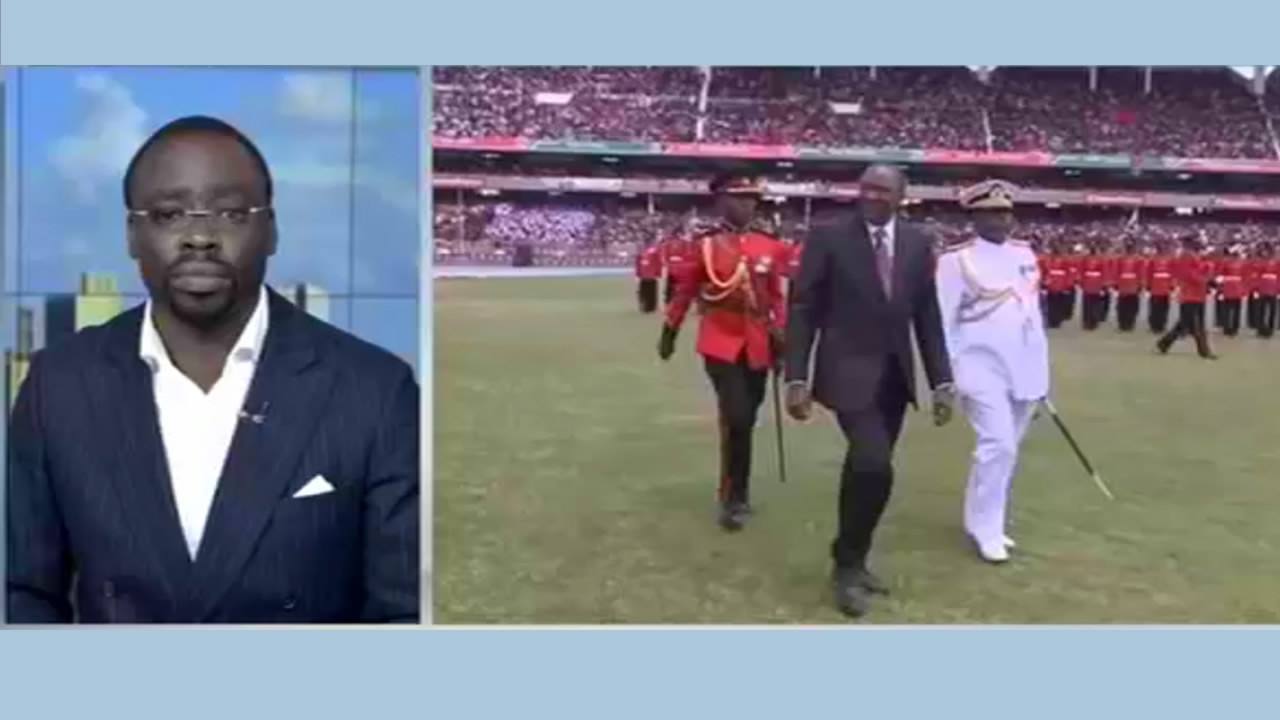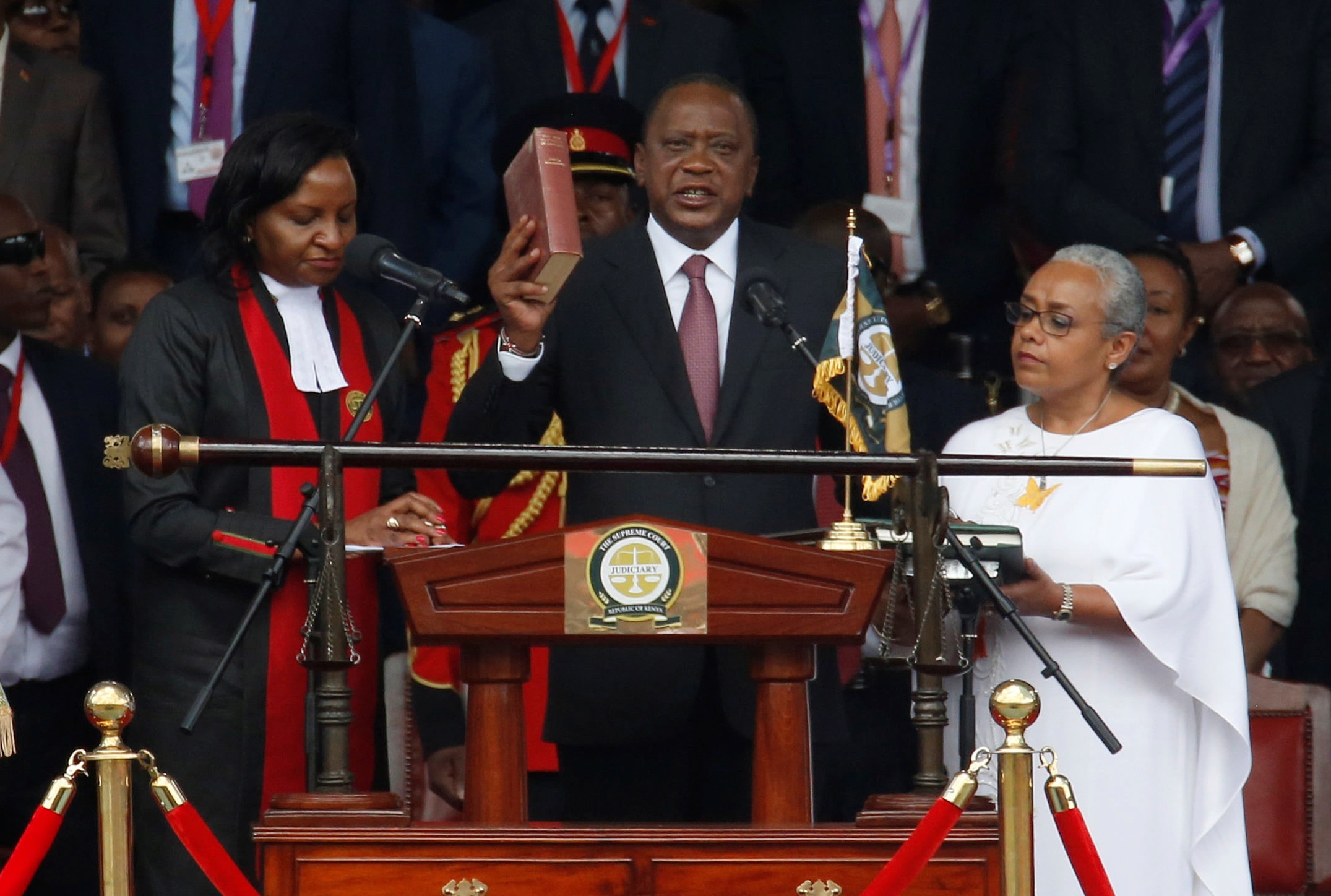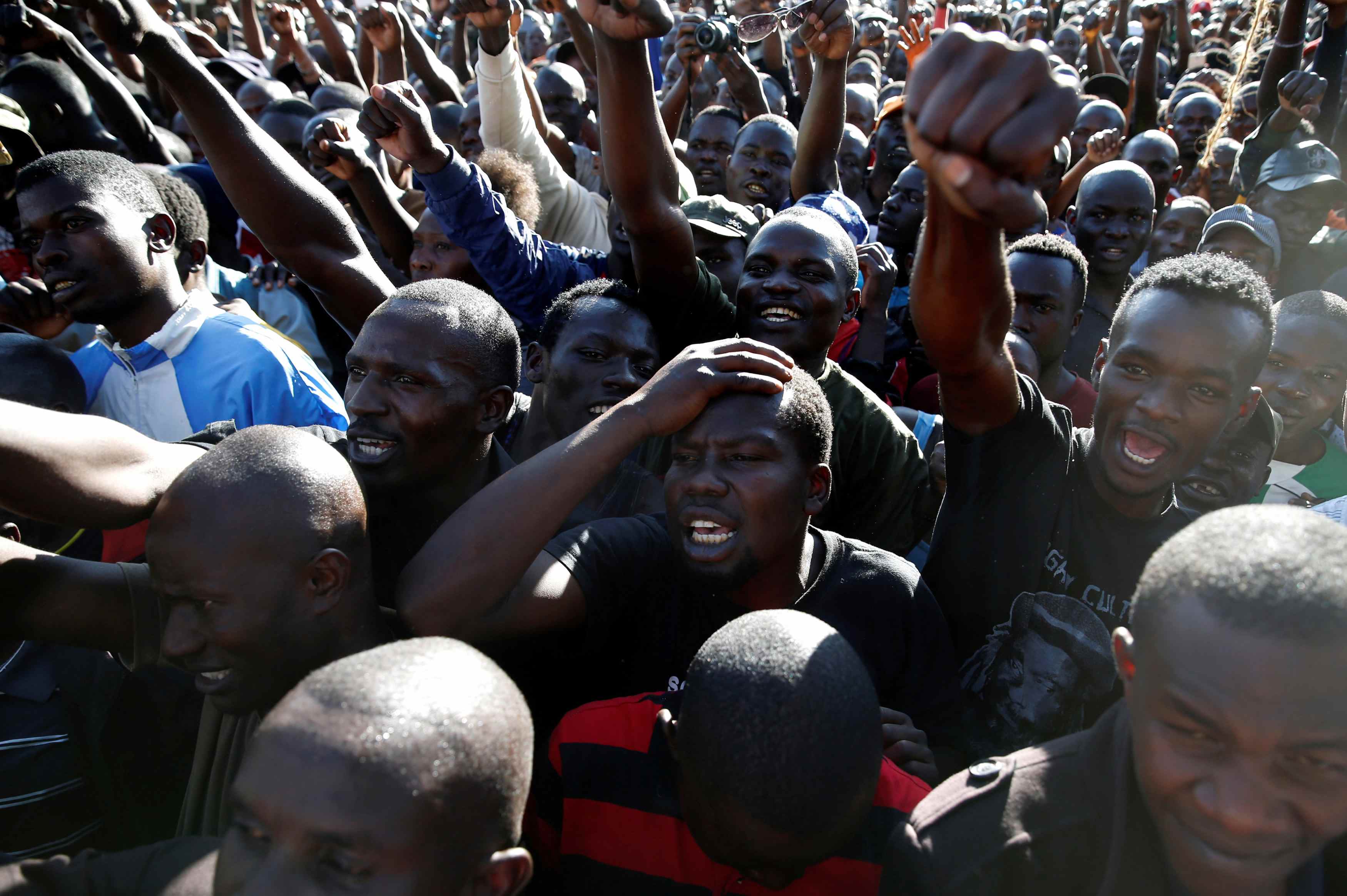
Opinions
11:16, 29-Nov-2017
Can we see a united Kenya after Kenyatta’s inauguration?
By CGTN's Ma Shaoyan

Kenya's President Uhuru Kenyatta was sworn in for a second term at the National Stadium in Nairobi, welcomed by cheers from his supporters.
According to Mark Bichachi, a political commentator and communication strategist, the strong support came with no surprise. Uhuru Kenyatta won re-election in an October poll with a landslide victory of 98 percent, despite a 39-percent voter turnout. But according to Mark Bichachi, the low turnout was not merely due to the absence of the opposition leader Raila Odinga. “The interesting fact,” he said, “was that people who did not vote for Uhuru Kenyatta but rather vote against Raila Odinga did not go to the polling station.”

Kenya's President Uhuru Kenyatta takes oath of office during inauguration ceremony at Kasarani Stadium in Nairobi, Kenya, November 28, 2017. /Reuters Photo
Kenya's President Uhuru Kenyatta takes oath of office during inauguration ceremony at Kasarani Stadium in Nairobi, Kenya, November 28, 2017. /Reuters Photo
In addition to advancing the country's development, the more pressing task ahead for Uhuru Kenyatta is to unite the country and avoid clashes that are tearing Kenya apart. Last Sunday, Kenyatta said, "Our responsibility after the political competition is to come together and work to build the nation." But opposition supporters say such talk of unity is tantamount to surrender.
Bichachi said that to some extent the opposition supporters regarded Raila Odinga as their “spiritual leader" and his influence in Kenyan politics was by no means coming to an end. The questions remain on how he would bounce back.
On Tuesday, Odinga planned to stage a massive rally in the capital to stop the inauguration. The opposition even planned to hold a prayer meeting to commemorate those that died over the election period. Those move, in the eye of Bichachi, were attempt to make headlines, to show disgruntle over the election, which the opposition leader repeatedly said was “not free and fair.“

Supporters of Kenyan opposition leader Raila Odinga gesture during a commemoration of the lives of Odinga supporters killed during confrontations with the security forces over the election period, in Kibera slum in Nairobi, Kenya, November 28, 2017. /Reuters
Supporters of Kenyan opposition leader Raila Odinga gesture during a commemoration of the lives of Odinga supporters killed during confrontations with the security forces over the election period, in Kibera slum in Nairobi, Kenya, November 28, 2017. /Reuters
So is there any wrongdoing in the election? The Supreme Court annulled Kenyatta's election win in August due to "illegalities and irregularities," but upheld re-election in an October poll which claimed the victory of Uhuru Kenyatta. Bichachi said whether there was a misconduct in the election would remain a subject of intense debate in the country but was not going to affect Kenyatta’s presidency.
The election has divided Kenya. More than 50 people died, many more were injured in the clashes between supporters of Kenyatta and Odinga. A united Kenya, according to Bichachi, might not be seen in the near future.

SITEMAP
Copyright © 2018 CGTN. Beijing ICP prepared NO.16065310-3
Copyright © 2018 CGTN. Beijing ICP prepared NO.16065310-3